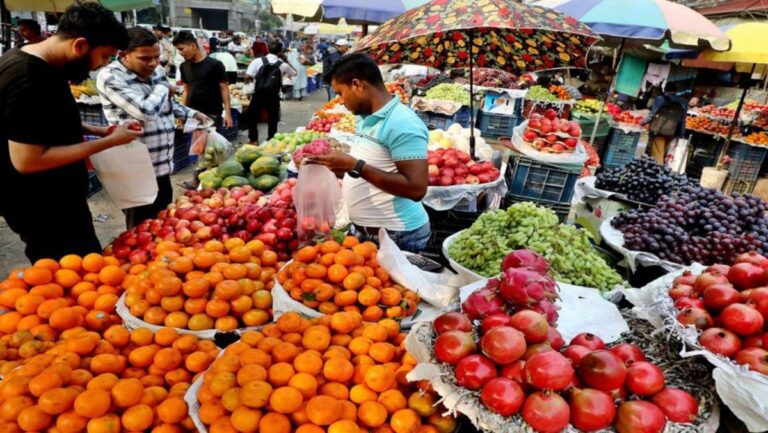🎧 Listen to This Article
DHAKA – In a significant move to reduce the cost of imported fruits, Bangladesh’s National Board of Revenue (NBR) has announced a reduction in the source tax on fresh and dried fruits. The new tax rate, which drops from 10% to 5%, came into effect immediately after the notice was issued Thursday, bringing relief to consumers as the prices of fruits like grapes, oranges, tangerines, and pears had been escalating due to earlier tax increases.
This tax cut comes after a period of rising import duties and supplementary duties on over 100 goods and services that were raised starting January 9. The new tax measures had placed additional burdens on imported fruits, with a supplementary duty increase from 20% to 30% and a regulatory duty increase in May 2022. As a result, the retail prices of these fruits have remained elevated, particularly during peak demand periods like Ramadan.
Context & Background – Tax Cuts Amid Price Surge
The reduction in source tax follows a broader fiscal strategy that initially raised customs duties on more than 100 imported goods in 2022 to stabilize foreign reserves and aid post-COVID economic recovery. Imported fruits, a key component of the consumer goods market, faced significant price hikes as a result of the tax increases. The NBR’s recent action aims to reduce these pressures on both consumers and the import sector.
Economic & Compliance Impact – Impact on Consumers and Trade
Prior to the tax cut, imported fruits were subject to a combined tax rate of 136%, which included import duties, regulatory duties, supplementary duties, VAT, advance income tax, and source tax. The reduction of the source tax by 5% is expected to lower prices, benefiting consumers who have been paying inflated rates due to the higher tax burden. For example, during Ramadan, consumers were paying between $0.23 to $0.46 per kilogram, with retail prices of apples ranging from $2.93 to $3.84 per kilogram.
Stakeholder Reactions – Industry Insights
Local fruit importers have welcomed the NBR’s decision, seeing it as a much-needed relief for the sector. However, there are concerns that further reductions in import duties or taxes might be required to bring prices down to more sustainable levels, especially given the ongoing pressures from inflation and global supply chain disruptions.
Next Steps & What to Watch – Future Tax Adjustments
While this immediate tax reduction will likely ease some of the price burden, the broader economic situation and the government’s fiscal policy for 2025 remain uncertain. The NBR’s continued adjustments to tax measures on imports will be critical to maintaining a balance between supporting consumer prices and ensuring adequate revenue for the government’s recovery efforts.
For further details, clarification, contributions, or any concerns regarding this article, please contact us at editorial@tax.news. We value your feedback and are committed to providing accurate and timely information. Please note that our privacy policy will handle all inquiries



